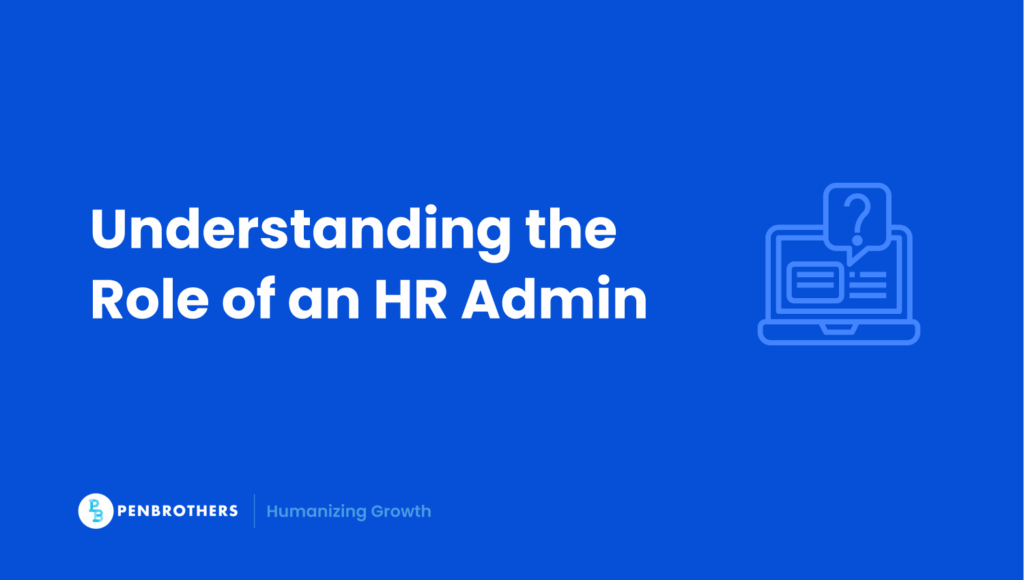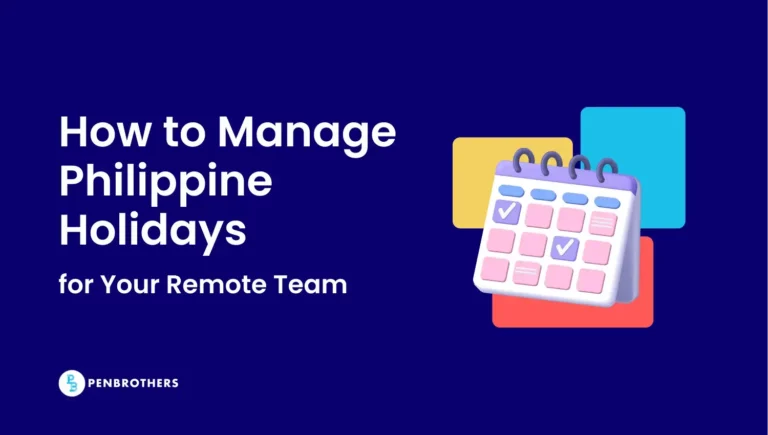Growing a business is hard enough. Doing it without a strong handle on your HR operations makes it even harder. That’s why understanding the role of an HR Administrator matters.
If you’re a founder, COO, or HR lead wearing too many hats, it may be time to think about who’s owning your HR backend. Or if it should even be owned in-house at all. In this article, we’ll break down what an HR Administrator does, why the role is critical in scaling companies, and what to consider if you’re deciding between hiring and outsourcing.
What Is an HR Administrator?
An HR Administrator is the operational backbone of your people function. This role ensures your HR systems, documents, and day-to-day queries run like clockwork. They handle the paperwork, the data accuracy, the compliance minutiae, all the things that keep you out of legal and operational trouble.
More importantly, they keep your employee experience consistent. When someone joins, leaves, or needs something in between, the HR Administrator is often the first person they deal with.
According to the U.S. Bureau of Labor Statistics, employment of Human Resources Specialists (which encompasses administrative-level HR roles) is projected to grow 8% from 2023 to 2033, which is faster than the average growth rate for all occupations
Key Responsibilities of an HR Administrator
HR Administrators wear many hats. Their core responsibilities fall into the following categories:
1. Employee Records Management
HR Administrators are custodians of employee data.
- Maintain accurate, up-to-date personnel records, including job titles, compensation details, employment history, and legal documents
- Ensure all documentation related to new hires, promotions, contract changes, and terminations is filed, stored, and secured according to company policy and labor laws
- Support audits by preparing required files and confirming data accuracy
2. HR Documentation & Policy Support
From contracts to compliance manuals, documentation is a daily priority.
- Draft, issue, and manage HR documents such as offer letters, employment agreements, promotion memos, and performance notices
- Assist in the creation and maintenance of employee handbooks, standard operating procedures (SOPs), and HR policy updates
- Ensure all documents reflect current legal and organizational standards
3. First-Line Employee Support
Often the face of the HR department, they handle day-to-day inquiries.
- Serve as the first point of contact for general HR-related questions, ensuring timely and accurate information
- Provide support on common issues including sick leaves, time-off requests, payroll timing, and benefits eligibility
- Escalate complex cases to senior HR staff while maintaining a high standard of employee service
4. Onboarding & Offboarding
HR Administrators play a vital role in both welcoming and exiting employees.
- Coordinate onboarding logistics: orientation schedules, training calendars, asset issuance, system access, and initial documentation
- Guide departing employees through offboarding steps including clearance, exit interviews, final pay processing, and knowledge transfer
- Maintain a consistent, people-first experience that protects both employee welfare and company integrity
5. HRIS and System Administration
Tech fluency is non-negotiable in modern HR operations.
- Manage Human Resource Information Systems (HRIS) and ensure the integrity of all data inputted
- Perform routine updates to reflect changes in employee status, roles, or compensation
- Generate reports and dashboards on workforce trends such as attrition, tenure, and diversity indicators
Curious which HR tools can streamline your operations? Explore different types of HR software to find the best fit for your team.
6. Payroll and Benefits Coordination
Though not typically payroll processors, HR Administrators provide critical input.
- Collect and verify variable pay inputs including attendance data, overtime, and leave balances
- Liaise with payroll providers or internal finance teams to ensure on-time and accurate salary disbursement
- Support employees in navigating benefits enrollment, claims, and policy queries
7. HR Reporting and Metrics
Data-driven decisions depend on timely and accurate reporting.
- Compile and analyze metrics related to headcount, turnover, absenteeism, training completion, and employee engagement
- Prepare reports for senior management to support workforce planning, budgeting, and compliance reviews
- Flag anomalies or trends that may require HR intervention or strategic action
8. Vendor and Compliance Liaison
An HR Administrator acts as a coordinator between internal stakeholders and external partners.
- Communicate with third-party service providers such as benefits brokers, insurance agents, training vendors, and background screening firms
- Ensure HR procedures comply with local labor laws, international standards (where applicable), and internal policies
- Maintain readiness for labor inspections or compliance audits by keeping documentation and processes audit-friendly
Why HR Administrators Matter in a Growing Business
When you’re scaling fast, chaos is easy to come by. An HR Administrator introduces the structure that fast-moving teams desperately need.
They’re not just clerical support. They’re the ones making sure your onboarding feels smooth, your compliance stays intact, and your team has someone to turn to when basic HR questions pop up.
This role helps unlock time and focus for your senior leaders and HR managers. It prevents burnout by taking repetitive, admin-heavy work off their plate.
More importantly, the HR Administrator helps your company stay compliant, organized, and employee-friendly without you having to build a full HR team from day one.
Mercer’s 2024 Global Talent Trends report notes that 24% of organizations are already outsourcing or co-sourcing parts of the HR function such as administrative tasks with another 21% planning to do so within the next year.
Skills and Qualifications to Look For
Not all HR Admins are created equal. Look for:
- Organizational Excellence and Attention to Detail
Top-performing HR Admins manage hundreds of details across employee records, benefits plans, payroll cycles, and compliance tasks. One missed entry can mean a legal risk or a delayed salary. Look for people who thrive in structured environments and treat accuracy as non-negotiable.
- Time and Priority Management
This role often supports multiple departments while juggling cyclical tasks like onboarding and payroll support. HR Admins should demonstrate the ability to triage requests, hit deadlines, and keep operations flowing without bottlenecks, especially in lean or fast-growing teams.
- Clear and Empathetic Communication
HR Administrators are the first point of contact for employees navigating sensitive topics, think sick leave, benefits claims, or grievances. The ability to communicate with empathy and clarity is crucial. Candidates should be able to explain HR policies in simple terms and build trust with staff at all levels.
- Tech Savviness and HR System Fluency
Whether in-house or offshore, your HR Administrator should be comfortable with systems like BambooHR, HiBob, Deel, Workday, or SAP SuccessFactors. Familiarity with spreadsheets, digital forms, and ticketing systems (e.g., Zendesk, Freshservice) is also valuable for streamlined support.
- Compliance Awareness and Regulatory Knowledge
Even if they’re not legal experts, HR Admins must understand labor law basics, privacy requirements (e.g., GDPR or local data protection rules), and payroll documentation standards. In distributed or offshore teams, knowledge of multiple jurisdictional rules is a plus.
- Discretion, Integrity, and Confidentiality
This role involves handling employee files, compensation data, disciplinary records, and benefits claims. You need someone who operates with discretion, exercises sound judgment, and builds a reputation for trustworthiness inside your organization.
Preferred Qualifications
These credentials signal readiness to handle the demands of an HR administrative role with confidence:
- Bachelor’s degree in Human Resources, Business Administration, Psychology, or related field
- At least 2 years of experience in an HR support, coordination, or administrative capacity, ideally in a growing company or fast-paced environment
- HR certifications such as:
- PHR (Professional in Human Resources) from HRCI
- SHRM-CP (Certified Professional) from the Society for Human Resource Management. Not sure if SHRM-CP is right for your candidate or team? Check out our SHRM certification guide for a full breakdown.
- HR Generalist or Payroll certifications, especially for offshore roles that require broader responsibility
According to SHRM, critical soft skills such as problem‑solving, time management, and adaptability are essential in HR roles because these professionals regularly navigate unpredictable employee needs and policy interpretations.
Want to learn more about preparing talent for roles like this? Understand what career readiness really means in today’s HR landscape.
When to Hire or Outsource an HR Administrator
If any of the following are true, it may be time to hire or outsource the role:
- You have 10+ employees and growing
- Your founder or COO is still handling onboarding or payroll
- You’re manually tracking leave or expenses via spreadsheets
- Your HR compliance burden is increasing (especially across countries)
- You’re launching an offshore or remote team
Remote work is here to stay. According to a broader survey cited by Invedus referencing Owl Labs, 61% of business leaders believe remote work is here to stay long-term.
In many cases, hiring an HR Administrator offshore is more cost-effective and scalable. That’s especially true if your HR needs don’t yet justify a full HR team, but you still want professional-level quality and accountability. Not sure where outsourcing starts and ends? Read our guide on Human Resource Outsourcing to understand how HRO can support your growth
At Penbrothers, many of our clients build their HR admin muscle through our offshore staffing model. We help them source experienced HR Administrators in the Philippines who work full-time for them but are supported by our team of HR, IT, and compliance experts. This setup gives you the benefit of control and dedication without the overhead or legal complexity.
Final Thoughts
An HR Administrator might not be the flashiest hire you make. But for companies scaling with intention, it’s one of the smartest.
They bring consistency, clarity, and calm to the messy middle of business growth. Whether you hire in-house or partner with an offshore provider like Penbrothers, investing in this role means protecting your people, your processes, and your peace of mind.
If you’re thinking about hiring an HR Administrator offshore, we’d love to help. Reach out to Penbrothers and discover how we can build your HR team with the right foundation.






